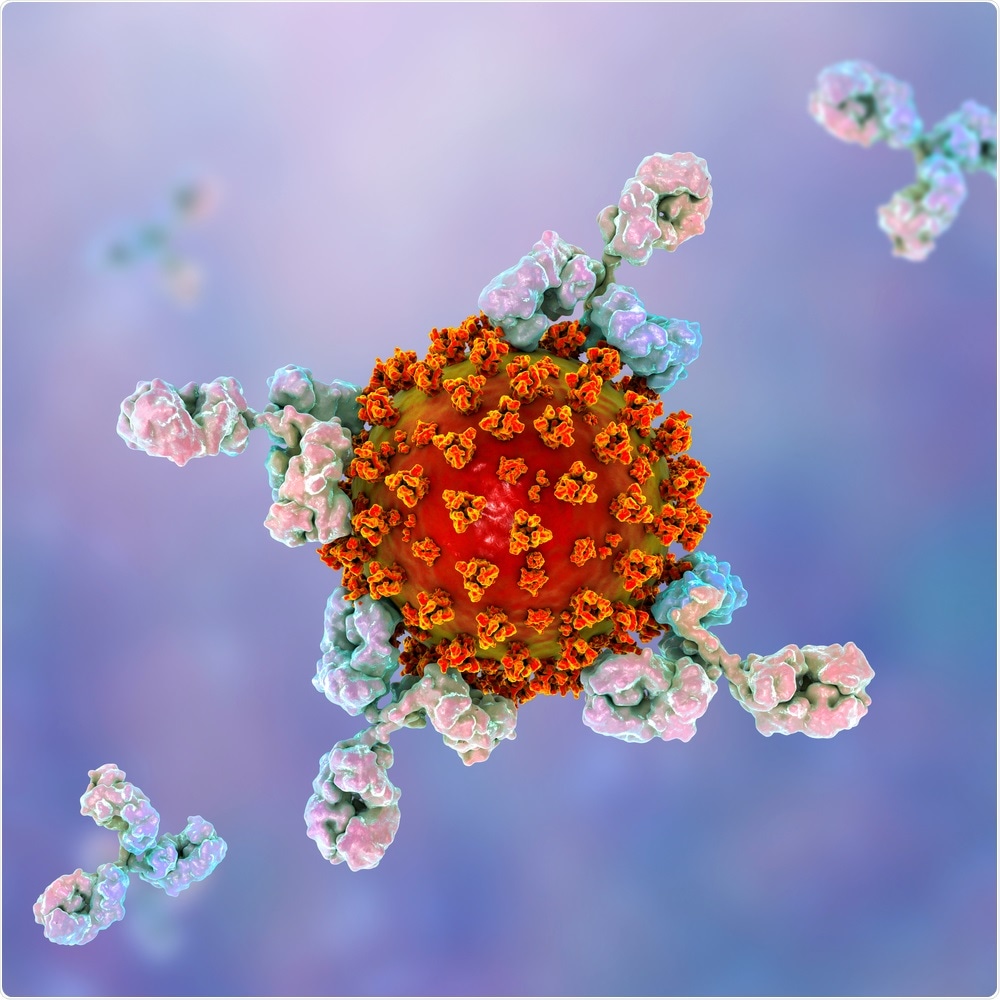An important line of defense in the fight against the new coronavirus SARS-CoV-2 is the formation of neutralizing antibodies. These can eliminate the intruders and have great potential to be used for the prevention and treatment of SARS-CoV-2 infection.

Antibodies attacking SARS-CoV-2 virus. Image Credit: Kateryna Kon / Shutterstock
A team of researchers led by Prof. Florian Klein (Cologne University Hospital) and the German Center for Infection Research (DZIF) has further elucidated how these antibodies develop and has isolated potent SARS-CoV-2 neutralizing antibodies. Together with Boehringer Ingelheim, these antibodies are currently being further characterized and developed. It is expected that they will enter the stage of clinical development later this year. The results were published today (July 07, 2020) in the journal Cell.
Our goal was to better understand the immune response to SARS-CoV-2 and to identify highly potent antibodies that could be used to prevent and treat COVID-19."
Prof. Florian Klein, Director of the Institute of Virology at the Cologne University Hospital and Principal Investigator at the DZIF
"We assume that such antibodies are effective for several weeks and may protect against COVID-19 during this period," added Dr. Christoph Kreer, who conducted the work together with Dr. Matthias Zehner in Cologne.
In close collaboration with scientists from Marburg, Frankfurt, Munich, Tübingen, and Israel, the researchers investigated the SARS-CoV-2 antibody response in twelve individuals recovered from COVID-19. They examined more than 4000 SARS-CoV-2-specific B cells on a single cell level and were able to partly decode the humoral immune response to SARS-CoV-2. They reconstructed 255 antibodies in the laboratory, which were examined by Prof. Stephan Becker's laboratory in Marburg for their ability to neutralize the novel coronavirus SARS-CoV-2. In total, 28 neutralizing antibodies were found.
"Interestingly, many antibodies showed only a small number of mutations. This means that only minor changes were necessary to effectively recognize and neutralize the virus" says Dr. Zehner. In fact, in blood samples collected before the pandemic, the scientists found B cells carrying similar antibody characteristics to those of SARS-CoV-2 neutralizing antibodies. This may suggest that SARS-CoV-2 antibodies can be readily formed and that an active vaccine may provide rapid protection.
The antibodies have been developed for protecting against and treating COVID-19. In addition, these antibodies could be used for 'post-exposure prophylaxis. Here antibodies would be applied after contact with an infected individual. "This form of intervention could be of particular interest in stopping localized outbreaks and for preventing disease progression in people at risk," said Prof. Klein. The scientists expect that the first clinical trials will be performed at the end of 2020.
Source:
Journal reference:
Kreer, C., et al. (2020) Longitudinal isolation of potent near-germline SARS-CoV-2-neutralizing antibodies from COVID-19 patients. Cell. doi.org/10.1016/j.cell.2020.06.044.